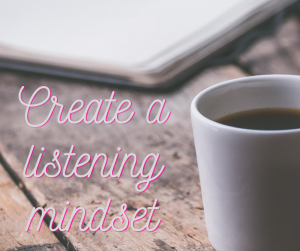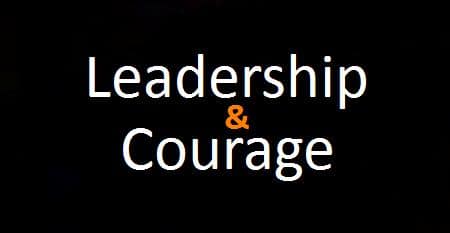 At this time we are feeling overwhelmed, worried about our future, waiting for the “cliff”, maybe even feeling a bit jealous of people who are doing OK while we might be struggling………there is so much going on for individuals and my observation is that many people are finding it hard to unleash the courage to think the best of others.
At this time we are feeling overwhelmed, worried about our future, waiting for the “cliff”, maybe even feeling a bit jealous of people who are doing OK while we might be struggling………there is so much going on for individuals and my observation is that many people are finding it hard to unleash the courage to think the best of others.
It is also worth noting our basic human nature is working against us to be courageous and think the best – as Andrew O’Keefe shared with us in his book Hardwired Humans, when people are exposed to a situation they are hardwired to think the worst because of an innate primal need to protect themselves. Now while this served us really well as cave dwellers when we were hunted by wild animals, it does not serve us well when working with human beings. At its very essence, we are hardwired to see a situation and impulsively think the worst and strive to make the decision that best results in self protection. We explore this in depth in our Courageous Leadership Program – the push and pull tension between impulsively reacting (in fight or flight mode) or deciding to push the pause button and choosing to consciously respond (in flow).
When we choose to push the pause button and operate in flow, we choose to give our colleague/other human the benefit of the doubt and think the best – and we can do this by asking a question to check out the situation further; being vulnerable and sharing our immediate thoughts and feelings and ask for their intent around the situation; or quite simply being vulnerable enough to sit in a space and really listen.
We do this best when we find our “core” and operate strongly and consistently from this space rather than enabling the current pendulum swing many of us find ourselves on – divulging versus avoidance. By doing this we strengthen trust in relationships and we can then work at greater speed, with increased effectiveness and stronger innovation.
Beware the Pendulum Swing
A dear colleague once shared this with me and I think it is very relevant for the current times we find ourselves in. He explained that we need to stabilise ourselves by finding our “core” rather than swinging from:
DIVULGE – where we spray our emotions on another person…………to
AVOID – where we abstain from sharing thoughts and feelings at all.
Given the range of emotions people are feeling and the unpredictability of situations people are facing, I see many of us swinging on the pendulum and struggling to find our core….where we own our emotions and share them in an emotionally resilient way with others so we can create a shared understanding and deeper connection.
Catch yourself as you “impulsively react” – and even better if you can notice what triggers the reaction – and then find a way to create space so you can push the pause button giving yourself time to decide how you consciously want to respond . It is all about choice – you can change the way you think about things!
This quote from Maya Angelou on complaining expresses it beautifully:
“Sister, there are people who went to sleep all over the world last night, poor and rich and white and black, but they will never wake again. Sister, those who expected to rise did not, their beds became their cooling boards, and their blankets became their winding sheets. And those dead folks would give anything, anything at all for just five minutes of this… So you watch yourself complaining, Sister. What you’re supposed to do when you don’t like a thing is change it. If you can’t change it, change the way you think about it. Don’t complain.”
Be present and create a mindset for good listening
“If every time we met with someone and gave them our full and complete attention for four minutes come hell or high water, it could change our lives”
~ Leonard and Natalie Zunin
It is all about being completely present and quieting our mind so we allow the whole message and the messenger to be understood. A significant part of our “core” to prevent the pendulum swing is listening!
Rebecca Shafir in her book “The Zen of Listening” shares that: “Over the decades our ability to talk has dramatically surpassed our ability to listen to one another. We can easily give someone a piece of our mind but we have much difficulty taking in another’s point of view.”
Listening is even more complicated when exposed to the less than optimal conditions most leaders are currently experiencing – like when team members are overwhelmed with and expressing emotion, or maybe feeling emotion and choosing to divulge limited insights, instead opting for the ease of generalisations. Leaders must bring a new outlook to listening – seeing it as the greatest gift they can give to another human being.
Leaders will benefit from stepping back, taking a good hard look in the mirror and asking themselves whether they are really listening to others. Are they being present when others are talking? Or are they running their own home movies and relating to their experiences and stories? During these challenging times leaders are being called upon to exercise good listening skills, and this is particularly testing when patience is low and expectations for task completion are high! So many things are working against us!
Remember when we find our “core” and operate strongly and consistently from this space rather than enabling the current pendulum swing, we strengthen trust in relationships and we work at greater speed, with increased effectiveness and stronger innovation.
Want to know more? Well let’s engage in a conversation.









